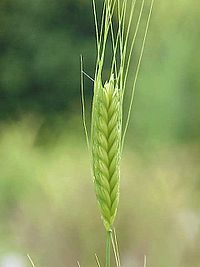**Rationale for Gluten-Free Diet Adoption:**
– Gluten can reactivate autoimmune responses in individuals with coeliac disease.
– Ingesting gluten, even in small amounts, hinders recovery in gluten-related disorders.
– Crucial for treating coeliac disease and related conditions to prevent complications.
– Alleviates symptoms in conditions like irritable bowel syndrome and rheumatoid arthritis.
– Incomplete recovery in coeliac patients often results from inadvertent gluten ingestion.
**Conditions Related to Gluten Sensitivity:**
– Coeliac Disease:
– Affects 1-2% of the global population and requires lifelong adherence to a gluten-free diet.
– Can lead to malabsorption, osteoporosis, and other complications if left untreated.
– Linked to autoimmune diseases like type 1 diabetes and thyroiditis.
– Non-Coeliac Gluten Sensitivity (NCGS):
– Manifests with symptoms that improve on a gluten-free diet.
– Linked to neuropsychiatric disorders and other food intolerances.
– Pathogenesis involving gliadin and ATIs is not fully understood.
**Nutritional Concerns and Considerations:**
– Gluten proteins have low nutritional value and are non-essential in the diet.
– Unbalanced gluten-free diets can lead to nutritional deficiencies.
– Overconsumption of gluten-free processed foods can cause lipid/carbohydrate imbalance.
– Proper dietary education is crucial to prevent nutritional complications.
– Gluten-free replacement products may lack essential nutrients like iron and B vitamins.
**Food Options and Dietary Choices:**
– Gluten-Free Diet Foods:
– Includes meat, fish, eggs, dairy, fruits, and vegetables.
– Pseudocereals like quinoa and amaranth are alternative gluten-free choices.
– Correct selection of gluten-free foods is essential to maintain a balanced diet.
– Commercial gluten-free products may lack enrichment compared to gluten-containing counterparts.
– Some minor cereals may cause issues for gluten intolerant individuals.
**Other Gluten-Related Conditions and Impact:**
– Wheat Allergy:
– Can cause symptoms similar to coeliac disease with a fast onset.
– Management involves complete withdrawal of wheat-containing foods.
– Some individuals with wheat allergy may tolerate other grains.
– Gluten Ataxia:
– An autoimmune disease triggered by gluten affecting coordination.
– Early diagnosis and a gluten-free diet can improve ataxia.
– Accounts for 40% of unknown origin ataxias with less common gastrointestinal symptoms.
– Gluten-Free Diet as a Popular Trend:
– Popular since the 21st century with many adopting it without medical evaluation.
– Influence from books like ‘Grain Brain’ and ‘Wheat Belly’ and advocacy by celebrities and athletes.
– Impact of Gluten-Free Diet:
– Not necessarily healthier for the general population, but may help with certain conditions like IBS.
– Misconceptions lead to its adoption, especially among younger generations.
A gluten-free diet (GFD) is a nutritional plan that strictly excludes gluten, which is a mixture of prolamin proteins found in wheat (and all of its species and hybrids, such as spelt, kamut, and triticale), as well as barley, rye, and oats. The inclusion of oats in a gluten-free diet remains controversial, and may depend on the oat cultivar and the frequent cross-contamination with other gluten-containing cereals.

Gluten may cause both gastrointestinal and systemic symptoms for those with gluten-related disorders, including coeliac disease (CD), non-coeliac gluten sensitivity (NCGS), gluten ataxia, dermatitis herpetiformis (DH), and wheat allergy. In these people, the gluten-free diet is demonstrated as an effective treatment, but several studies show that about 79% of the people with coeliac disease have an incomplete recovery of the small bowel, despite a strict gluten-free diet. This is mainly caused by inadvertent ingestion of gluten. People with a poor understanding of a gluten-free diet often believe that they are strictly following the diet, but are making regular errors.
In addition, a gluten-free diet may, in at least some cases, improve gastrointestinal or systemic symptoms in diseases like irritable bowel syndrome, rheumatoid arthritis, or HIV enteropathy, among others. There is no good evidence that gluten-free diets are an alternative medical treatment for people with autism.
Gluten proteins have low nutritional and biological value and the grains that contain gluten are not essential in the human diet. However, an unbalanced selection of food and an incorrect choice of gluten-free replacement products may lead to nutritional deficiencies. Replacing flour from wheat or other gluten-containing cereals with gluten-free flours in commercial products may lead to a lower intake of important nutrients, such as iron and B vitamins. Some gluten-free commercial replacement products are not as enriched or fortified as their gluten-containing counterparts, and often have greater lipid/carbohydrate content. Children especially often over-consume these products, such as snacks and biscuits. Nutritional complications can be prevented by a correct dietary education.
A gluten-free diet may be based on gluten-free foods, such as meat, fish, eggs, milk and dairy products, legumes, nuts, fruits, vegetables, potatoes, rice, and corn. Gluten-free processed foods may be used. Pseudocereals (quinoa, amaranth, and buckwheat) and some minor cereals have been labelled commercially as alternative choices but have since been found to be problematic among gluten intolerant and coeliac individuals depending on the quantity consumed.





